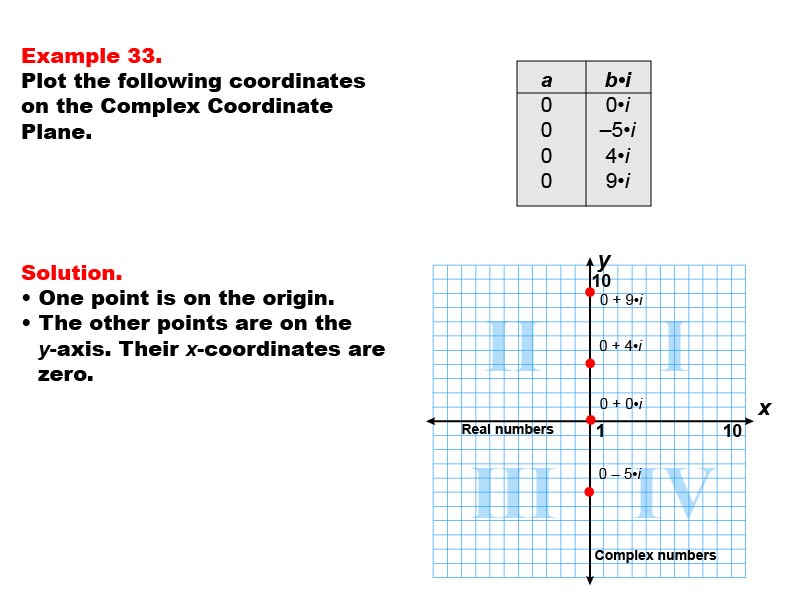
Display Title
Math Example--Coordinate Geometry--Coordinate Systems: Example 33
Display Title
Math Example--Coordinate Geometry--Coordinate Systems: Example 33

Topic
Geometry
Description
This example illustrates plotting points on the imaginary axis of the complex plane. The image displays four points: (0, 0), (0, -5i), (0, 4i), and (0, 9i). These points represent purely imaginary numbers on the complex plane, where the real part is zero.
Understanding how to plot purely imaginary numbers on the complex plane is essential for developing a comprehensive grasp of complex number theory. This example helps students visualize that purely imaginary numbers lie on the imaginary axis of the complex plane.
By providing examples of points on the imaginary axis, including positive and negative numbers and zero, students can develop a deeper understanding of the relationship between imaginary numbers and their representation on the complex plane. This approach reinforces the concept that purely imaginary numbers are complex numbers with a zero real part.
Teacher's Script: Take a close look at how these points are plotted on the imaginary axis of the complex plane. Notice that all points have an x-coordinate (real part) of zero. Can you explain why these points represent purely imaginary numbers? Let's discuss the significance of the imaginary axis in the complex plane and how it relates to our understanding of real and complex numbers.
For a complete collection of math examples related to Coordinate Systems click on this link: Math Examples: Coordinate Systems Collection.
| Common Core Standards | CCSS.MATH.CONTENT.6.NS.C.8 |
|---|---|
| Grade Range | 6 - 8 |
| Curriculum Nodes |
Geometry • Coordinate Geometry • Coordinate Systems |
| Copyright Year | 2013 |
| Keywords | coordinate geometry, coordinate system, coordinate systems |